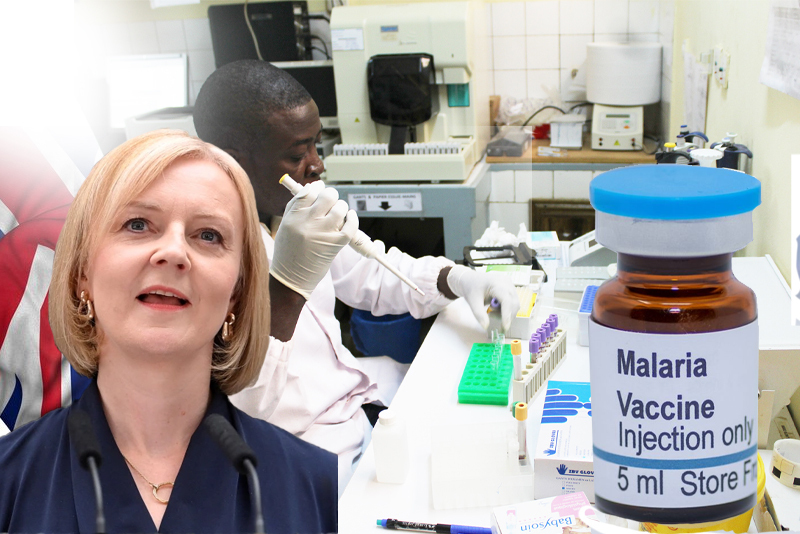
On verge of malaria vaccine, experts urge Truss to continue funds
The co-inventor of a groundbreaking malaria vaccine that can effectively help in eradication of the disease that claims countless lives in developing and under developed countries, has urged newly appointed UK Prime Minister Liz Truss to not turn off the taps of global health funds to the cutting edge UK innovation.
Prof Adrian Hill, director of Oxford University’s Jenner Institute has said “it would be tragic if Britain cut funding just as scientists were poised to make a real impact against malaria”. The statement comes as successful results have come in from latest trials of malaria’s R21 vaccine. Results from the testing in Africa’s Burkina Faso has showed that R21 vaccine has already shown 77 per cent efficacy after the initial doses and also maintains its high efficiency after a single booster jab.
Hill, who is also the co-creator of the AstraZeneca Covid-19 vaccine, said it was “the best [malaria] vaccine yet”. He added that he believes that R21 could help in reducing deaths from the disease by 70 per cent by 2030 and also eradicate it by 2040. Hill has however, cautioned that in absence of further funds it would be a difficult task to make the vaccine available to tens of thousands of African children who most urgently need it.
Providing more than half of all fundings for the world’s malaria programmes, the Global Fund to Fight Aids, Tuberculosis and Malaria, has warned that unless it receives additional funds significantly more fundings from leading donor nations such as the UK, it will “not be able to get the fight against those diseases back on track after the Covid pandemic”.
“It’s incredibly important that the Global Fund is properly refunded. What they do is absolutely amazing,” said Hill. “I hope the new prime minister will be very keen to recognise the importance of doing what the UK [the fund’s third-biggest donor] has done so well in the past.”
Prof Halidou Tinto, regional director of the health sciences research institute (IRSS) in Nanoro, and the Burkina Faso trial principal investigator, said that “while production was not expected to be an issue, the big challenge for poor African countries was how to fund the vaccine’s rollout.” The trial in Burkina Faso includes over 400 children between ages of five and 17 months are received three doses of the vaccine in 2019, which was followed by a single booster shot 12 months later.




